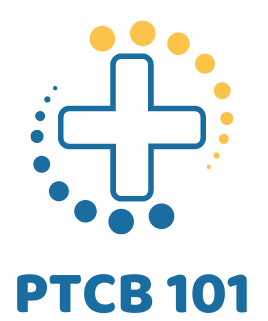Looking for programs in a specific city? Check out our lists of PTCB in Atlanta, Augusta-Richmond County, Columbus, Macon-Bibb County, Savannah, Athens-Clarke County, South Fulton, and Sandy Springs.
Starting a healthcare support career offers a rewarding path. Here’s how to become a pharmacy technician in Georgia:
- Understand the role: Learn about assisting pharmacists with prescription medications.
- Meet educational requirements: Discover the necessary qualifications and recommended high school courses.
- Get certified: Find out about certification exams and the registration process in Georgia.
Following these steps will guide your journey. Pursue becoming a pharmacy technician in Georgia and secure a promising career.
- Understanding the Role of a Pharmacy Technician
- Educational Requirements
- Training Programs in Georgia
- Certification Process
- Licensing and Registration in Georgia
- Job Market and Salary Outlook
- Continuing Education and Career Advancement
- Essential Skills and Qualities for Success
- Resources for Aspiring Pharmacy Technicians
- Looking for Pharmacy Technician Information On States Bordering Georgia?
- Conclusion: Embark on Your New Career
Understanding the Role of a Pharmacy Technician
A pharmacy technician plays a critical part in the healthcare system by assisting pharmacists in dispensing prescription medications to patients. They handle a variety of tasks that ensure the pharmacy operates smoothly and efficiently.
Key Duties and Responsibilities
The responsibilities of a pharmacy technician encompass several areas:
- Medication Dispensing: Pharmacy technicians assist in preparing and dispensing medications. They ensure the accuracy of prescription labels and the correct dosage of medications.
- Customer Interaction: Technicians engage with customers to provide prescription information, answer questions, and address concerns. Exceptional customer service skills are essential.
- Inventory Management: Maintaining an organized and well-stocked inventory is crucial. Pharmacy technicians monitor stock levels, check for expired medications, and process orders for new supplies.
- Insurance Processing: Technicians handle insurance claims, ensure accurate billing, and resolve any issues with insurance rejections.
- Administrative Tasks: From processing payments to maintaining patient records, pharmacy technicians perform various administrative duties to support the pharmacy’s operations.
Work Environment
Pharmacy technicians work in different settings, each offering unique experiences and opportunities:
- Retail Pharmacies: These include large chain stores and independently-owned pharmacies. Retail settings often require direct customer interactions.
- Hospitals and Clinics: Technicians in hospitals support inpatient care and work closely with healthcare teams.
- Long-term Care Facilities: Providing medications to residents in nursing homes and assisted living facilities involves specific protocols and coordination.
Educational Requirements
To become a pharmacy technician in Georgia, you must meet certain educational criteria. While a high school diploma or GED is the minimum requirement, engaging in additional coursework and training programs can provide a significant advantage.
Recommended High School Courses
Consider focusing on these high school subjects to build a solid foundation:
- Mathematics: Critical for dosage calculations and understanding pharmaceutical measurements.
- Chemistry: Offers insights into the chemical properties of medications.
- Biology: Understanding how medications impact the body is essential.
- Computer Science: Proficiency in using pharmacy software and electronic database management is crucial.
Accredited Pharmacy Technician Programs
Enrolling in an accredited pharmacy technician training program can significantly enhance your knowledge and job prospects. These programs cover various essential topics:
- Pharmacology: Learn how different drugs work and their classifications.
- Medical Terminology: This helps you understand the language used in healthcare.
- Pharmacy Law and Ethics: Knowledge of legal and ethical guidelines is crucial for practice.
Program Formats
Pharmacy technician programs come in different formats to suit your needs:
- In-Person Programs: These provide hands-on experience and direct interaction with instructors and peers.
- Online Programs: Offer flexibility, especially for those balancing work and study.
Training Programs in Georgia
Several training programs in Georgia prepare students to excel as pharmacy technicians. Here are some notable institutions.
Notable Training Programs
- Atlanta Technical College Pharmacy Tech Program:
- Experienced Faculty: Industry veterans provide practical insights and knowledge.
- State-of-the-Art Labs: Hands-on training is emphasized through modern laboratory facilities.
- Internships: Opportunity to gain real-world experience and practice skills in a professional setting.
- Georgia Northwestern Technical College Pharmacy Tech Program:
- Comprehensive Curriculum: Courses include pharmacology, pharmacy law, and medical terminology.
- Practical Training: Lab sessions are integral for developing technical skills needed in the pharmacy environment.
- Ashworth College Online Pharmacy Technician Program:
- Flexibility: Ideal for those who require a more adaptable study schedule.
- Accreditation: Offers a nationally accredited program that ensures a quality education.
Program Benefits
Training programs in Georgia often include:
- Externships and Internships: These provide on-the-job experience in various pharmacy settings.
- Job Placement Assistance: Many programs offer resources to help you find employment after certification.
Certification Process
Becoming a certified pharmacy technician solidifies your expertise and credibility in the field. There are two primary certification exams you can take.
Certification Exams
- Pharmacy Technician Certification Exam (PTCE):
- Administered by: Pharmacy Technician Certification Board (PTCB).
- Exam Content: Includes pharmacology, medication safety, pharmacy law, and medication order entry and fill processes.
- Study Resources: The PTCB website offers study guides, practice exams, and review courses to help you prepare effectively.
- Exam for the Certification of Pharmacy Technicians (ExCPT):
- Administered by: National Healthcareer Association (NHA).
- Exam Content: Covers similar topics with a focus on pharmacy operations. It assesses competence in essential areas such as medications, federal requirements, patient safety, and quality assurance.
Preparation Tips
To succeed in the certification exams, consider these preparation strategies:
- Review Exam Content: Focus on the key areas highlighted in the exam guides.
- Use Study Guides: Invest in study materials specifically tailored for the pharmacy technician exams.
- Practice Tests: Taking practice exams can help you become familiar with the format and types of questions that will be asked.
- Join Study Groups: Collaborate with peers for shared learning, support, and a deeper understanding of the material.
Licensing and Registration in Georgia
To practice as a pharmacy technician in Georgia, you need to register with the Georgia Board of Pharmacy. This process ensures that all practicing technicians meet the state’s requirements and maintain professional standards.
Registration Process
- Application Submission: Complete the online application available on the Georgia Board of Pharmacy’s website.
- Registration Fee: Pay a non-refundable fee of $100 to process your application.
- Background Check: Undergo a criminal background check, which is a requirement to obtain registration.
Continuing Education Requirements
Staying updated on industry standards is crucial to maintaining your license. Georgia mandates that all pharmacy technicians complete continuing education (CE).
- Renewal Period: Your registration requires renewal every two years.
- Continuing Education Hours: You must complete a minimum of 20 hours of CE, including at least 1 hour dedicated to pharmacy law.
- Approved Providers: Make sure to choose CE programs recognized by the Georgia Board of Pharmacy.
Job Market and Salary Outlook
The pharmacy technician career in Georgia is promising. An aging population and expanding pharmacy services drive the demand for qualified professionals. According to recent statistics, the job market for pharmacy technicians is expected to grow significantly in the coming years.
Employment Settings
Pharmacy technicians find diverse opportunities across multiple settings.
- Retail Pharmacies: Positions are readily available in chain drugstores and independent pharmacies.
- Hospitals and Clinics: These settings offer roles that support hospital pharmacy departments and patient care teams.
- Specialty Pharmacies: Growing sectors like oncology and compounding pharmacies provide niche opportunities.
Salary Insights
In Georgia, the median annual salary for a pharmacy technician is approximately $34,000. Your earnings can vary based on experience, workplace setting, and additional certifications.
- Median Salary: Around $34,000 per annum.
- Factors Influencing Pay: Experience, geographical location, workplace setting, and additional certifications can lead to higher wages.
Job Growth
The increasing healthcare demands offer substantial growth potential:
- Growing Demand: An aging population increases the need for pharmacy services, thereby boosting job opportunities.
- Role Expansion: With evolving responsibilities, pharmacy technicians are gaining more significant roles within pharmacy operations.
Continuing Education and Career Advancement
Continuing education is essential for keeping your skills up-to-date and advancing your career. Further certifications and specialization opportunities add value to your profile.
Specialization Opportunities
Enhancing your credentials through specialized certifications can set you apart in the field:
- Certified Compounded Sterile Preparation Technician (CSPT): This certification allows you to specialize in sterile compounding, which is in high demand.
- Oncology Pharmacy: Focus on cancer-related medications, providing a critical service to oncology patients.
- Nuclear Pharmacy: Specialize in the unique field of handling radioactive medications used for imaging and treatment.
Career Advancements
Various avenues exist for career growth within the pharmacy technician field:
- Supervisory Roles: Progress to positions where you oversee other pharmacy technicians and contribute to management tasks.
- Instructor Positions: Use your experience to teach and train future pharmacy technicians.
- Further Education: Pursue advanced degrees or more specialized certifications to explore new career paths within the healthcare industry.
Essential Skills and Qualities for Success
Success as a pharmacy technician hinges on a blend of specific skills and personal qualities. Mastering these can set you up for a thriving career.
Key Skills
- Attention to Detail: Accuracy in dispensing medications and maintaining records is crucial.
- Customer Service: Providing compassionate and efficient interactions with patients and healthcare providers.
- Technical Proficiency: Competence in using pharmacy software and managing technological tools.
- Organizational Skills: Keeping the inventory and workflow within the pharmacy well-managed and orderly.
Personal Qualities
- Reliability: Perform duties consistently with a high degree of accuracy and dependability.
- Good Communication: Effectively convey information and instructions to patients and team members.
- Teamwork: Collaborate effectively with pharmacists and other pharmacy staff to ensure smooth operations.
Resources for Aspiring Pharmacy Technicians
Leveraging available resources can significantly benefit your journey. Utilize these tools to enhance your education and professional development.
Valuable Resources
- Georgia Pharmacy Association (GPhA): Offers networking opportunities, education, and professional development.
- PTCB Website: Provides comprehensive exam preparation materials and certification information.
- Online Communities: Engage with peer support and advice through platforms like Reddit Pharmacy Technician Forum and LinkedIn Pharmacy Technician Groups.
Looking for Pharmacy Technician Information On States Bordering Georgia?
In addition to Georgia, we suggest looking for schools in nearby states.
- How to Become A Pharmacy Technician in Florida
- How to Become A Pharmacy Technician in Alabama
- How to Become A Pharmacy Technician in Tennessee
- How to Become A Pharmacy Technician in South Carolina
- How to Become A Pharmacy Technician in North Carolina
Conclusion: Embark on Your New Career
By following the steps in this guide—understanding the role, meeting educational and certification requirements, and taking advantage of resources—you are well on your way to a successful career as a pharmacy technician in Georgia. Embark on your journey today and contribute to the healthcare community in a significant and rewarding way.

